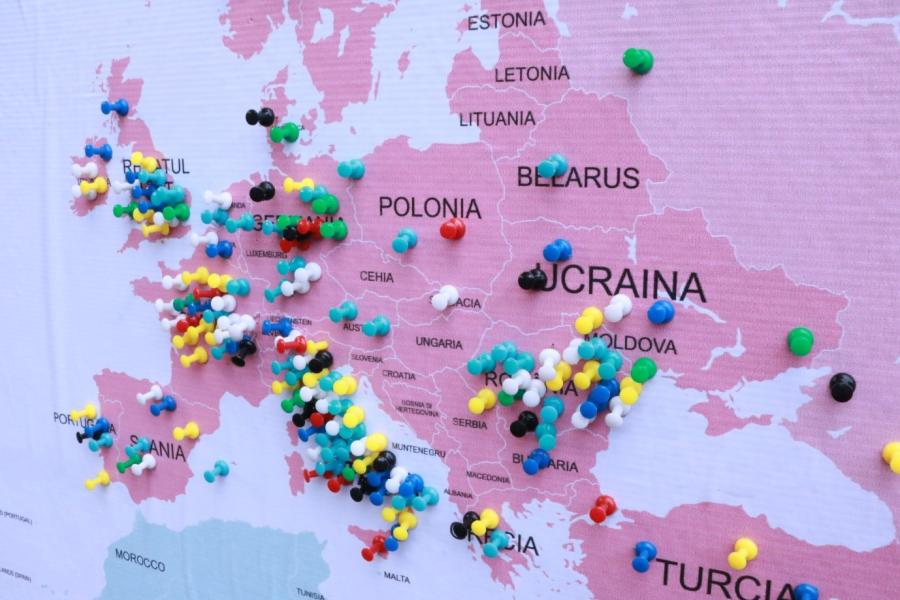IOM Mission to Moldova is assessing the impact of COVID-19 pandemic on the returnees and remittance dependent families in Moldova
24 July 2020
Big amount of data collected from thousands of surveyed Moldovan migrants and their families will be analyzed in order to estimate the mobility-driven impact of COVID-19 pandemic, number and profiles of the returning migrants as well as specific vulnerabilities of groups affected by the decrease of remittances. The study is conducted by IOM Mission to Moldova in partnership with the World Bank with the support of the UN COVID-19 Response and Recovery Multi-Partner Trust Fund.

The study consists of three phases: 1. Planning and Coordination with Governmental and international development Partners; 2. Distribution and collection of survey questionnaires and 3. In-depth and experts interviewing.
It is estimated that 237.000 households, one quarter of total number of Moldovan households, receive remittances while only half of these rely on remittances for more than 50% of their disposable income.
Ghenadie Crețu, project manager IOM: The main purpose of this study is to see the social and economic profiles of returned citizens and their families, their needs and future plans. It is also very important to figure out their capacities and the amount of investment they are ready to support. We are expecting that this survey will help us to devise policies and programs to stimulate the reintegration of returning migrants and to supply the needed labour force in the Republic of Moldova.
At least 2000 households from Moldova affected by the decreased remittances and 1000 returned citizens are going to be interviewed on the phone in the second phase of the survey, that is being implemented by CBS-AXA, Center of Sociological Investigations and Marketing Research.
The overall objective of this assignment is to support Government of Moldova to improve the evidence-based policy-making to enforce the active stimulation of reintegration of returning migrants and offering them gainful livelihood opportunities, measures and opportunities to enhance the services for affected groups.
Besides the quantitative and qualitative collected data, a baseline assessment will be executed by means of analyzing the administrative data offered by the epidemiological fiches and the data offered by the Border Police, National Employment Agency, and other available sources. The results of the study will be integrated into mechanisms for evidence-based decision making and planning of the early recovery solutions and will operationalize the support offered to targeted beneficiaries.
Within the framework of the UN COVID-19 Response and Recovery Multi-Partner Trust Fund, IOM Moldova will additionally provide WASH supplies for 10 Points of Entries (PoEs and support the development, updating and dissemination of international standards-compliant operating procedures for front-line border officials at the PoEs for detection, notification, isolation, management and referral of travelers potentially infected with coronavirus.
The UN COVID-19 Response and Recovery Multi-Partner Trust Fund supports development, effectiveness and UN coherence through the efficient, accountable and transparent design and administration of innovative pooled financing instruments. The fund that is currently supported by the Governments of Norway, Denmark, the Netherlands, and Switzerland offered UN Moldova one million dollars, out of which IOM Mission to Moldova implements the financial support of USD 120,000.



